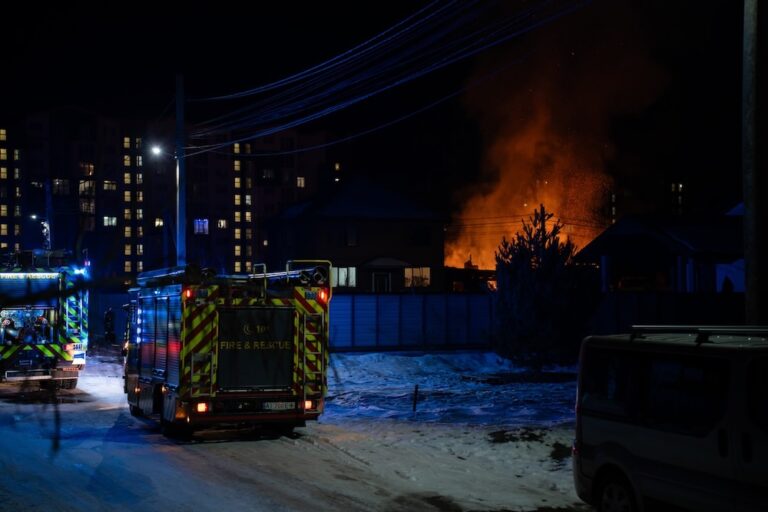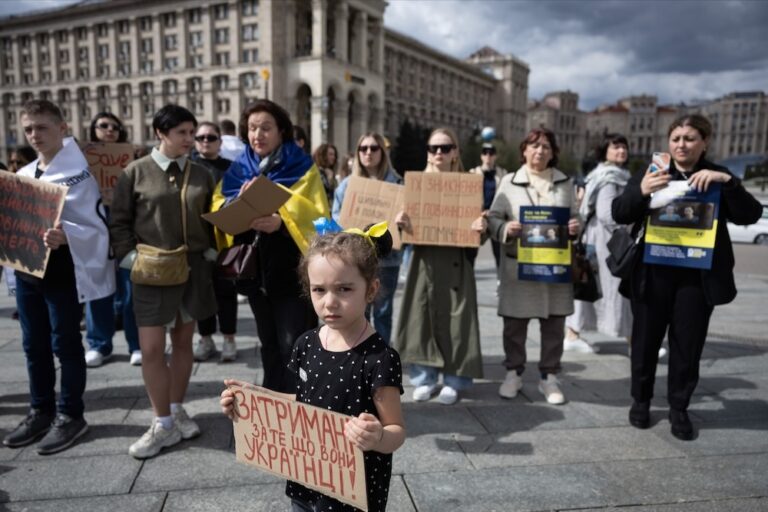(CJES/IFEX) – A court of the town of Apatity, in Murmansk region, recently considered the issue of extending the treatment of journalist Larisa Arap in the Apatity psychiatric hospital. Despite the recommendation made by an independent psychiatric commission, which had come to Apatity from Moscow on the initiative of Russian human rights ombudsman Vladimir Lukin, […]
(CJES/IFEX) – A court of the town of Apatity, in Murmansk region, recently considered the issue of extending the treatment of journalist Larisa Arap in the Apatity psychiatric hospital. Despite the recommendation made by an independent psychiatric commission, which had come to Apatity from Moscow on the initiative of Russian human rights ombudsman Vladimir Lukin, the court ruled that Arap’s treatment in the hospital should continue.
Yelena Vasilyeva, the head of the Murmansk division of the United Civil Front, has told CJES the court was biased against the independent experts from the very start. “The judge asked to see their diplomas, to which the members of the commission said they had not expected to be asked to speak in court. When the experts said they were authorized by human rights ombudsman Vladimir Lukin, the court was unconvinced. Luckily, one of the members of the commission, Vladimir Prokudin, had the necessary diplomas with him, which certified all his achievements in the area of psychiatry,” said Vasilyeva.
After meeting with Arap, the independent experts decided that there was no need for her to remain in the hospital for treatment. They also found that she was not being given the right treatment in the hospital.
“Specifically, Prokudin told the court that Larisa should be released from hospital because the doctors’ approach there will not help speed up her recovery. Her condition will improve in four to six days, but only if she is allowed to go home where her relatives and loved ones can care for her. He said that, even though the doctors have chosen the right medication, there are more effective medicines that can be used at home. He also said that Larisa not only poses no threat to herself or other people, but she does not need forced treatment. She fully trusts the experts and is ready to take all the necessary medications at home. Larisa told the court several times that she realizes she needs to get treatment for stress and said she will closely follow the Moscow doctors’ recommendations,” said Vasilyeva.
“Larisa was led away by three medics. She tried very hard not to cry. Before the trial, she told me ‘They will never let me go.’ And they did not,” said Vasilyeva.
Arap’s lawyer, Dmitry Bartenyev, told CJES the trial was conducted illegally because the first ruling issued by the Murmansk court, which found Arap’s treatment in the Murmansk hospital to be legal, never entered into force as Larisa’s husband filed an appeal against it. That appeal was never considered. In addition, the lawyer believes the case involving the extension of Arap’s treatment should not have been held in the Apatity hospital as the ruling issued by the Murmansk court only concerned her treatment in the Murmansk hospital; she was taken to Apatity without her consent. The lawyer asked the Apatity court to order the hospital administration to discharge the journalist immediately.
Vasilyeva and Arap’s relatives believe that the journalist is being punished for her article on the city’s psychiatric clinics, in which she addressed the issue of violence used by medical staff in the treatment of mental patients.


